An Airbnb user is furious after the company denied their request to cancel a booking during the dangerous Palisades wildfires.
Recently, a traveler named Ana Mostarac expressed her frustration with Airbnb.
The company refused to cancel her booking amid the dangerous wildfires in the Pacific Palisades area of Los Angeles.
This incident has sparked conversations about the company’s policies in times of crisis.
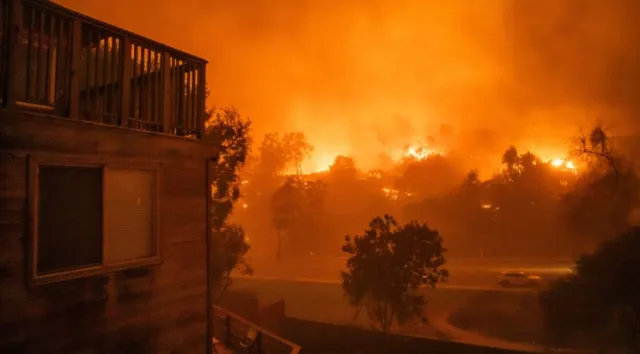
The wildfires in Los Angeles
The recent Palisades fire has caused significant alarm and destruction in the Los Angeles area.
The blaze began in early January 2025 and quickly spread, engulfing numerous homes, cars, and other structures in this affluent neighborhood.
As the flames intensified, many residents were forced to evacuate urgently, leading to the closure of schools and businesses.
Firefighters worked tirelessly to control the fire, but dry conditions and strong winds made their efforts challenging.
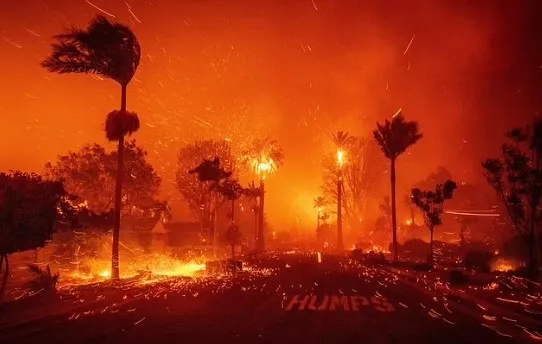
Those affected sought temporary shelter, and the community came together to support those in need.
The fire not only resulted in property damage but also left lasting emotional scars on many families.
They have burned homes, schools, and cars in wealthy neighborhoods.
As the flames spread quickly, many people worry about their safety and property.
Traveler enraged as Airbnb refuses to cancel booking for rental near danger zone of Palisades wildfires
Mostarac had booked a vacation rental close to the wildfire zone. As the fires worsened, she decided to contact Airbnb for help.
She wanted to rebook her accommodation to a safer location.
Mostarac expected understanding from the company due to the emergency situation.
However, they met her request with disappointment.
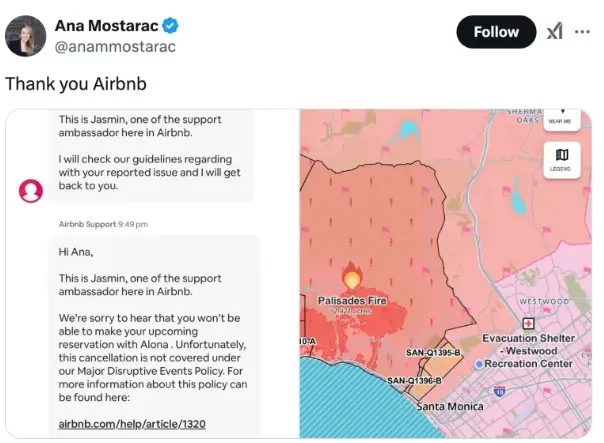
Airbnb’s response addressed the concerns of guests.
When Mostarac reached out, Airbnb informed her that their disaster policy did not cover her cancellation.
They explained that the “Major Disruptive Events Policy” did not apply in her case.
Instead, the property host would enforce the strict cancellation policy.
“We’re sorry to hear that you won’t be able to make your upcoming reservation,” they declared, per a screenshot of their exchange.
“Unfortunately, this cancellation is not covered under our Major Disruptive Events Policy.
This means that your Host’s Strict Cancellation policy will apply.”
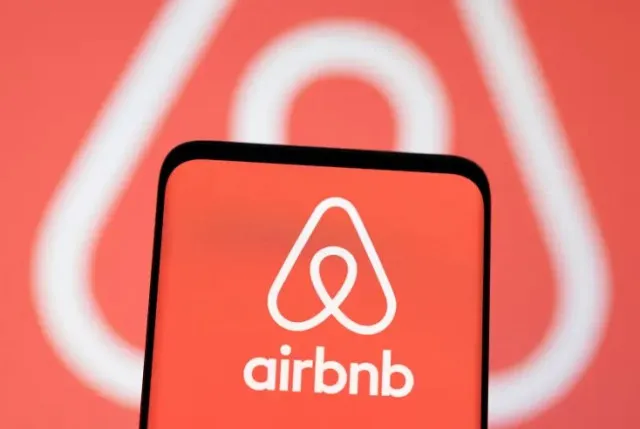
This response angered Mostarac, who felt that Airbnb’s policies did not consider the gravity of the situation.
She shared her experience on social media, expressing her disappointment in the company’s lack of flexibility during a crisis.
“Thank you Airbnb,” she snarked in the post’s caption.
“As always, their policies failed to account for context,” she declared in a follow-up post.
“The fires keep getting worse, and unfortunately, many others are probably stuck explaining bushfires to someone in another country right about now.”
“They failed in the moment when it matters most,” she further fumed.
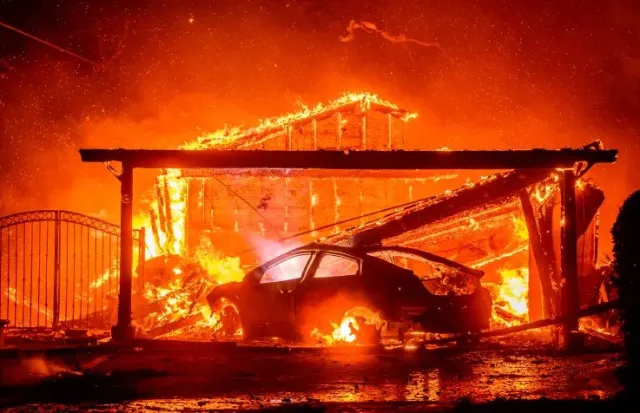
Mostarac’s post quickly gained attention online.
Many people sympathized with her and voiced their anger towards Airbnb’s decision.
Guess I won’t be booking with Airbnb, one user said.
We’re not talking millions of dollars here, give her the refund!!! The second user claimed.
Sounds like airbnb, had similar with hurricane moving in, they wouldn’t refund until it was on top of the area. Wanted us to travel to the house as florida was being evacuated, the third user said.
When a state of emergencies like this has been declared all business should be required to refund cancellations, another user wrote.
Disgusting! I will NEVER use Airbnb, someone said.
The company’s clarification provided essential information and updates.
Following the public outcry, Airbnb stated the situation.
They mentioned that Mostarac had booked her stay after the wildfires had already started.
This detail was important for their policy, as bookings made during such events might not be eligible for cancellation under their guidelines.
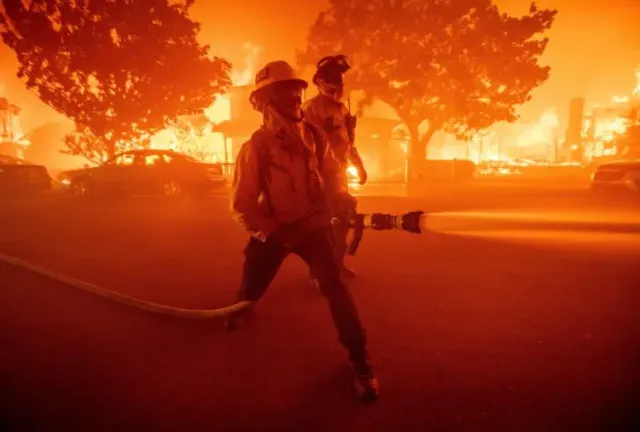
Despite the initial refusal, the company later reached out to Mostarac to offer her a full refund as a goodwill gesture.
This change came after recognizing the severity of the situation and the public’s reaction.
“When a large-scale event occurs, we assess the situation to determine whether the Major Disruptive Events Policy applies,” the guidelines read.
“If it does, we activate the Policy for the impacted area and timeframe where we anticipate that the Event will prevent or legally prohibit completion of reservations.”